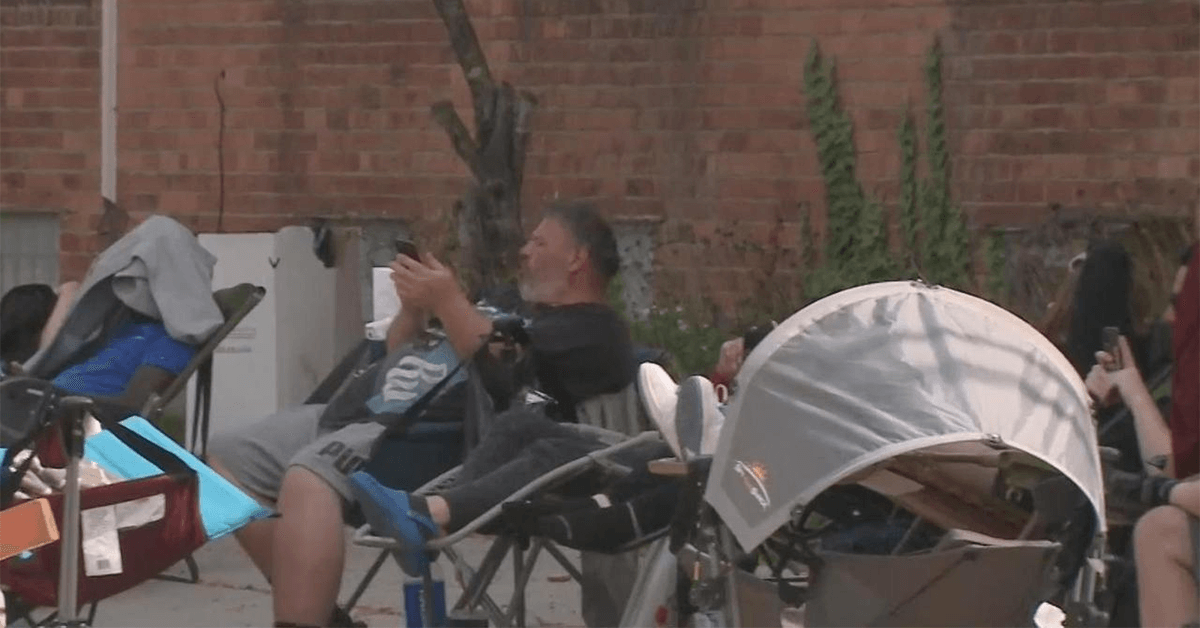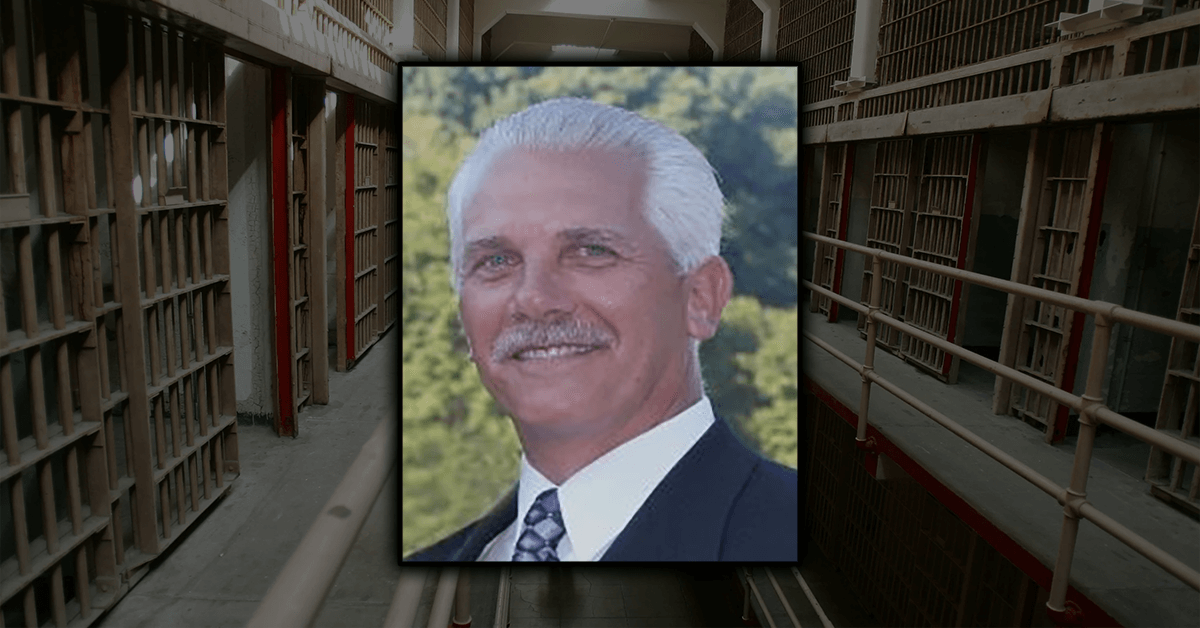Court Keeps Howell Cannabis Dispensary Proposal on November Ballot

A Michigan Court of Appeals decision has ensured that a local proposal to permit cannabis dispensaries in Howell will remain on the ballot. This ruling comes after the city's clerk attempted to withdraw her consent for the question to appear before voters.
The ballot initiative seeks to amend Howell's city charter to introduce "an application process, selection criteria, licenses, fees, and regulations for two adult-use retail cannabis establishments." However, legal complications emerged after concerns were raised about the potential conflict between the proposed charter amendment and the Michigan Regulation and Taxation of Marihuana Act (MRTMA), which governs recreational cannabis use statewide. Specifically, questions arose about whether the local measure would supersede state law, leading to the city clerk's reversal.
The Howell city clerk initially approved the proposal to move forward, allowing county election officials to include it on the ballot. However, following a separate Michigan Court of Appeals decision regarding a similar ballot measure in Farmington, where it was ruled that the measure exceeded the narrow scope of what could be enacted through a ballot initiative under state law, the Howell clerk reconsidered. She then sought to retract her approval.
This led the group advocating for the measure, the Open Stores in Howell Committee, to file a lawsuit against the clerk's decision. The group had already won at the trial court level, and the recent appellate court decision upheld that victory.
In its ruling, a three-judge panel emphasized the importance of adhering to election deadlines and rejected the idea that the Howell city clerk had the authority to change her position after certification. The court stated, "The crux of defendants' argument is that the City Clerk has a continuing duty to approve or reject a petition even beyond the deadline for certification to the County Clerk. Again, defendants have provided no authority for that position." The court further highlighted that allowing clerks to backtrack could disrupt crucial election processes, including ballot printing and mailing deadlines.
While this decision clears the way for the ballot question, the court did leave open the possibility for future legal challenges if the proposal is approved by voters.
Livingston County Clerk Elizabeth Hundley, also named as a defendant in the case, remarked on the ongoing difficulties local clerks face in managing cannabis-related proposals. "There needs to be some clarification so that everyone — including local clerks and their legal counsel — knows what can and cannot be included in the language of these petitions," Hundley said.
Despite these legal hurdles, Hundley confirmed that her office's priority is to ensure that ballots are ready for the upcoming November 5th election. Absentee ballots are already being mailed to voters who requested them.
DOOBIE Act Gains Senate Support, Aims to End Employment Bias for Cannabis Use

A U.S. Senate committee has approved a bill aimed at preventing federal agencies from using past cannabis consumption as a basis for denying employment or security clearances. The bipartisan measure, known as the Dismantling Outdated Obstacles and Barriers to Individual Employment (DOOBIE) Act, passed the Senate Homeland Security and Governmental Affairs Committee in a 9-5 vote. Introduced by Senator Gary Peters (D-MI), the legislation represents a significant shift in federal hiring practices to better align with the growing trend of cannabis legalization at the state level.
This measure is part of an ongoing effort to ensure that prior marijuana use does not automatically disqualify candidates from public service. Currently, federal regulations allow agencies to reject applicants for federal jobs or security clearances based on past marijuana use, regardless of whether the applicant's state has legalized cannabis for medical or recreational use. The DOOBIE Act would change that by making it illegal for federal agencies to deny employment or security clearances solely on the basis of an individual's past use of marijuana.
Aligning Federal Policy with a Changing Legal Landscape
Senator Peters emphasized the need for federal hiring policies to reflect the rapidly evolving legal and cultural views on cannabis. "The federal government must adapt its hiring practices to reflect the evolving legal and social landscape of our nation," Peters said in a statement. "My bill takes a crucial step by aligning federal policy with existing agency guidance, ensuring that past marijuana use alone doesn't automatically disqualify talented individuals from public service. This approach will expand our talent pool and create a fairer, more inclusive hiring process."
The DOOBIE Act's approval in committee marks the first step in a legislative process that could lead to more equitable hiring practices across the federal government. All Democratic members of the committee, along with one Independent and Republican Senator Rand Paul (R-KY), supported the bill. The remaining Republican members opposed the measure.
The legislation now heads to the full Senate for further consideration. If passed, it would significantly alter how federal agencies handle employment applications from individuals who have used marijuana in the past.
Key Provisions of the DOOBIE Act
Under the DOOBIE Act, federal agencies would no longer be allowed to disqualify job candidates or deny security clearances solely based on past marijuana use. The bill outlines several key areas of reform:
-
Federal Employment: Agencies would be prohibited from using prior cannabis use as the sole factor in determining employment eligibility or suitability for federal jobs.
-
Security Clearances: The legislation also prevents federal agencies from denying security clearances based solely on past cannabis use. This would provide clarity and reassurance for those who may have previously avoided applying for federal positions due to concerns about being disqualified for cannabis consumption.
-
Credentialing: Federal employees would not be denied personal identity verification credentials—used to access federal facilities and information—based solely on prior marijuana use.
-
Oversight and Implementation: The bill includes a provision for oversight, ensuring that the Office of Personnel Management (OPM) and the Director of National Intelligence (DNI) update their policies to reflect these new rules. The U.S. comptroller general will be responsible for assessing the implementation of the law and ensuring compliance by federal agencies.
-
Regulatory Updates: OPM and DNI would be required to revise their regulations to communicate that past marijuana use is not a barrier to federal employment. The Director of National Intelligence, in particular, has affirmed that current policy already discourages agencies from denying security clearances for past cannabis use, but this legislation would formalize that stance across all federal agencies.
Addressing the Disconnect Between Federal and State Law
As of 2024, 24 states and Washington, D.C., have legalized both medical and recreational cannabis use, while an additional 14 states permit cannabis for medical purposes. However, federal law continues to classify marijuana as a Schedule I controlled substance, leading to a disconnect between state policies and federal hiring practices. This has discouraged many qualified candidates from pursuing federal positions due to concerns about being automatically disqualified for prior cannabis use.
The DOOBIE Act aims to address this disconnect, aligning federal hiring policies with current state laws and cannabis legalization trends. By removing the stigma attached to past marijuana use, the bill seeks to broaden the pool of qualified candidates for federal positions and ensure that the government can compete with the private sector for top talent.
Broad Support and Some Opposition
The DOOBIE Act has garnered support not only from Senate Democrats but also from Republican lawmakers such as Senator Rand Paul, who voted in favor of the bill in committee. However, opposition remains strong among some Republicans, who argue that cannabis use, even in the past, should be a disqualifying factor for federal employment.
The measure has a counterpart in the House of Representatives, the Cannabis Users Restoration of Eligibility (CURE) Act, which seeks to provide similar protections for federal job applicants. A previous version of the bill, introduced last year, received bipartisan support but faced challenges during the legislative process. The DOOBIE Act marks the latest effort to address those concerns and push for reforms in federal employment practices.
Next Steps
The DOOBIE Act now moves to the full Senate, where it will be debated and voted on in the coming weeks. If passed, it would mark a major step forward in aligning federal employment policies with the broader movement toward cannabis legalization across the United States.
Conclusion
The DOOBIE Act represents a significant step toward ensuring that past marijuana use does not unfairly penalize individuals seeking federal employment or security clearances. As more states move to legalize cannabis, the bill addresses a growing need to modernize federal hiring practices and remove outdated barriers to public service. With bipartisan support and a companion bill in the House, the legislation has the potential to reshape federal employment policies and open the door to a more inclusive and competitive workforce.
Chris Webber's $175 Million Cannabis Venture Faces Market Challenges, Plans Revised

Chris Webber's $175 million cannabis venture, Players Only, has faced significant challenges since its initial announcement in 2021. Planned for southwest Detroit, the ambitious project aimed to establish a state-of-the-art facility that would include a cannabis cultivation center, consumption lounge, dispensary, and a job training complex focused on helping communities disproportionately affected by cannabis-related legal issues. However, nearly two years later, the project remains incomplete.
One of the key obstacles has been the sharp decline in cannabis prices in Michigan, which have dropped by around 56% since construction began. This price crash forced Webber and his partners to rethink their approach, recognizing that their original plans would no longer be financially viable under current market conditions. As Webber noted, "The cannabis industry has really shifted in Michigan," leading them to reassess their goals and scale down the project to avoid potential financial losses.
Despite the setbacks, Webber remains committed to the venture, emphasizing that his team is working on a revised plan that will still benefit the local community while adapting to the new economic realities. Webber also aims to secure the necessary licenses to open a dispensary in Detroit, which remains a core component of the project's vision. Additionally, he continues to push forward with his broader mission to foster equity in the cannabis industry, including initiatives that support minority-owned cannabis businesses through a $100 million equity fund.
Cannabis Justice Advocate Michael Thompson Receives Cannabis Hero Award

Michael Thompson, based in Flint, MI, remains at the forefront of the national movement for criminal justice reform related to cannabis offenses and the improvement of prison conditions.
After serving 25 years as Michigan's longest-incarcerated non-violent offender, Thompson was granted clemency by Governor Gretchen Whitmer. He was released on January 28th, 2021, and since then, he has devoted himself to advocating for the freedom of others, beginning his work as soon as he walked out of Parnall Correctional Facility in Jackson, MI.
Thompson now serves as the President of the Michael Thompson Clemency Project, a non-profit organization dedicated to fighting for clemency and reforming cannabis-related criminal justice policies. The organization has earned widespread recognition for its efforts. In December 2022, Thompson was featured in a forum organized by the ACLU and Princeton University, which focused on the role of clemency in reducing mass incarceration. The event brought together notable figures such as Oregon Governor Kate Brown and New Jersey Attorney General Matthew Platkin. At the forum, Thompson and Governor Brown were both honored with the inaugural Lewis Conway Jr. Leadership in Clemency Award for their contributions to criminal justice reform.
In recognition of his ongoing efforts, Thompson was awarded the Cannabis Hero Award at the Last Prisoner Project's (LPP) Journey to Justice Gala, held at Sony Hall on September 24th, 2024. Thompson's clemency campaign received significant support from the Last Prisoner Project, an organization dedicated to securing the release of non-violent cannabis prisoners. As a proud LPP constituent, Thompson continues to stand in solidarity with the project, advocating for the freedom of all individuals incarcerated for non-violent cannabis-related crimes.
To support Michael Thompson and his mission to address the injustices caused by the War on Drugs, visit mtclemency.com/donate.
Applicants Camp Outside Redford Township for Cannabis Dispensary Licenses

After months of anticipation, Redford Township is set to open its doors to cannabis dispensary applications, beginning on October 3rd. This significant move has drawn considerable attention from prospective business owners, some of whom have already started lining up outside the Township Hall, despite the application process still being weeks away.
The line of hopeful applicants started forming on September 10th, immediately following the Township's decision to begin issuing licenses. Some of those waiting in line are working on behalf of cannabis companies, rotating in shifts 24/7 to maintain their spot. Township leaders have observed the unusual level of commitment among these potential licensees. "People have been to concerts and stood in line overnight. I've just never seen anybody stand in line for this amount of time," said Pat McRae, Redford Charter Township Supervisor.
With no cap on the number of dispensary licenses available, the Township will issue permits based on location criteria. Dispensaries must adhere to buffer zone regulations, meaning they cannot be placed within 1,000 feet of schools, public parks, or daycares, nor can they be within 2,500 feet of another cannabis business. This setup ensures a controlled expansion, despite the absence of a numerical cap on licenses.
Although applicants are eager to get in on the business, the industry landscape in Michigan presents challenges. Jerry Millen, owner of Greenhouse of Walled Lake, expressed concerns about market oversaturation. "A lot of stores that open now aren't getting customers... they're trying to give product away, and the prices are so cheap that they're losing money," Millen explained. Michigan's cannabis market, however, continues to flourish, with the state setting a new record in August 2024, selling over $295 million worth of cannabis. The state is projected to reach over $3.3 billion in sales by the end of the year, driven in part by low prices.
While the revenue prospects for Redford Township remain uncertain, McRae is optimistic. "The revenue will be good. I don't think it's going to be super, but I think it's gonna be good revenue," McRae said. He also pointed out that in other communities, cannabis businesses have revitalized buildings and maintained high security standards, which could similarly benefit Redford.
The application process in Redford comes with a $5,000 fee, and reviews will take six to eight weeks. Given the strong interest, officials have noted that some applicants have devised self-policing systems to ensure fairness. "They've been taking pictures of each other to see who's in line. There's a camera outside for security, so if there's any dispute, we can check that," McRae added. Applicants must remain in line or have someone hold their place, as leaving without a replacement means forfeiting their spot.
As the October 3rd application date approaches, Redford Township continues to prepare for the influx of applicants, which signals the community's entrance into Michigan's booming cannabis industry. The excitement is palpable, but so are the challenges that may accompany the expansion.
Political Fallout as Monroe County Leader Sentenced for Drug-Related Charges

Monroe County Commissioner Mark Brant has been sentenced to 18 months in federal prison after pleading guilty to a charge of maintaining a drug-involved premises. The sentencing took place on September 11th, 2024, in the U.S. District Court for the Northern District of Ohio. Brant, who has served on the Monroe County Board of Commissioners since 2012 and currently chairs the board, was also ordered to pay a $500,000 fine and forfeit over $300,000 seized from his residence.
The case stems from a federal indictment issued on December 15th, 2022, accusing Brant of allowing his Michigan rental properties to be used for growing and distributing cannabis, specifically marijuana and tetrahydrocannabinol (THC). His properties, rented out between 2018 and 2020, were part of a scheme that involved the distribution of marijuana across state lines into Ohio, which was a violation of federal law at the time. Although Brant did not directly cultivate or distribute the cannabis, he was charged for knowingly permitting the activity to occur on his premises.
Legal Battle and Sentencing
Brant's legal troubles began in early 2023 when he was formally charged with conspiracy to distribute and possess a controlled substance. According to court filings, Brant cooperated with authorities and did not dispute the accusations. His defense team, led by attorney Vincent Haisha, argued that Brant was not a significant figure in the drug trade but merely allowed his rental properties to be used for marijuana cultivation. Haisha emphasized that Brant's involvement in the cannabis-related business was only a minor part of his larger agricultural portfolio, which primarily focused on sharecropping soybeans, corn, and other crops.
Haisha also pointed out the shifting legal landscape regarding marijuana. Michigan had legalized recreational cannabis use in 2018, and Ohio followed suit in 2023, although the federal law under which Brant was charged remains unchanged. His defense argued for leniency, asking for probation or home confinement instead of prison time, given Brant's clean criminal record and his prominent standing in the Monroe County community.
In support of this argument, Haisha submitted letters from notable figures, including Michigan State Senator Joe Bellino, Monroe County Deputy Administrator Aundrea Armstrong, and Monroe County Administrator Michael Bosanac. These letters attested to Brant's character and long history of public service. Senator Bellino, who has known Brant for 25 years, described him as an honest family man and expressed surprise at the charges against him.
Despite these appeals, U.S. District Judge Sara Lioi handed down an 18-month prison sentence. Brant will also be subject to two years of supervised release following his time in prison.
Impact on Political Future
Brant's sentencing comes at a pivotal time, as he is running unopposed in the upcoming November election. The fact that he continues to have the support of his community, as noted in his attorney's memo, speaks to his longstanding role in local politics. However, his conviction and incarceration could create uncertainty about his future on the Monroe County Board of Commissioners.
While Brant has declined to comment on the case, the political and legal ramifications are significant. The sentencing also raises broader questions about how the evolving legal landscape surrounding cannabis at the state level intersects with existing federal drug laws.
Broader Legal Context
This case highlights the ongoing conflict between state and federal cannabis laws. Michigan legalized recreational marijuana in 2018, allowing adults to possess and cultivate limited amounts of cannabis for personal use. However, federal law still classifies marijuana as a Schedule I controlled substance, making its cultivation, sale, and possession illegal at the federal level.
While there has been growing momentum toward federal marijuana reform, including efforts to re-schedule or decriminalize cannabis, federal prosecutors continue to enforce existing laws in cases where state lines are crossed or federal property is involved. Brant's case serves as a reminder that, despite state-level legalization, individuals involved in the cannabis industry remain at risk of federal prosecution under certain circumstances.
Conclusion
Mark Brant's conviction and sentencing underscore the complexities of cannabis law in the U.S., where conflicting regulations at the state and federal levels can lead to significant legal consequences. As Brant serves his prison sentence and pays hefty fines, the political and personal fallout from his involvement in cannabis-related activities will likely be felt for years to come.


 Helpful Links
Helpful Links